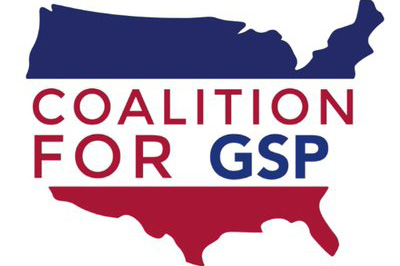News from: CalChamber
The California Chamber of Commerce continues to push for congressional reauthorization of a U.S. trade program that has saved companies billions of dollars in tariff costs on imported goods.
The U.S. House Ways and Means Committee held a hearing in fall 2023 on the Generalized System of Preferences (GSP) program and leadership has since made progress on legislation. A bill could be introduced and marked up this quarter, with hopes to pass something by spring 2024.
Added Tariffs
Because Congress failed to renew the GSP program before it expired on December 31, 2020, U.S. companies are paying more than $2 billion in added tariff costs.
For decades, the GSP program has received bipartisan support due to its track record of creating jobs in both developing countries and the United States. The program eliminates import taxes on nearly 5,000 designated products from about 120 emerging economies, opening the U.S. market to qualifying exports.
The typical beneficiary company employs about 20 people and GSP saves them between $100,000 and $200,000 in duties, which can be a big savings for a small business.
At the same time, GSP supports U.S. workers and manufacturers by reducing costs of imported inputs and equipment and helps American families stretch their paychecks by lowering the costs of consumer goods imported duty-free.
California Impact
California is one of the top economies in the world with a gross state product of approximately $3.8 trillion. In 2022, California exported $185.55 billion to 227 foreign markets.
Due to the expiration of the GSP program, California companies have paid more than double the tariff amount of any other state.
In 2020, California companies saved $238 million in tariffs thanks to the GSP program. California routinely is the greatest benefactor of the GSP program.
History of GSP
The GSP program was instituted on January 1, 1976, by the Trade Act of 1974 and was designed to promote economic growth in the developing world by providing preferential duty-free entry for products from designated beneficiary countries and territories.
GSP is an important tool for boosting economic growth and job creation. Many U.S. companies source raw materials and other inputs from GSP countries, and the duty-free treatment of these imports reduces production costs for these U.S. manufacturers, making them more competitive.
CalChamber Position
The CalChamber, recognizing that the Generalized System of Preferences has stimulated two-way trade with the United States and has contributed to the long-term economic development of some developing countries, supports annual extensions of the Generalized System of Preferences.
More Information
For more information, visit www.calchamber.com/GSP.
To join the Coalition for GSP, visit renewgsptoday.com/join-the-coalition-for-gsp/.
